Showing 161–165 of 529 results
-
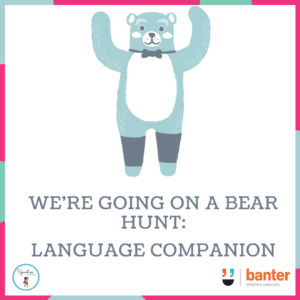
$11.00 including GST
In this 63-page no-prep oral language companion to “We’re Going on a Bear Hunt”, we have adopted the language used in the book to create a verbal reasoning workout that’s fun, and flexible.
Featuring 12 oral language activities, we’ve focused most of the tasks at Blank’s 2nd Level of questioning, making it suitable for preschoolers and young school-aged children alike.
-
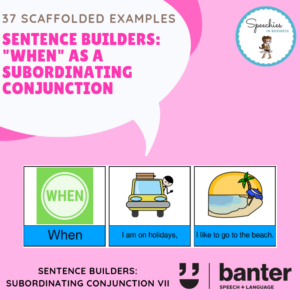
$5.99 including GST
Some people – including people learning English as a second language, and people with developmental language disorders – have difficulty understanding and using “when” in complex sentences. This 22-page pack is designed to help them, with scaffolded examples using both pictures and words to support people with a range of different needs to learn the word in sentences.
-
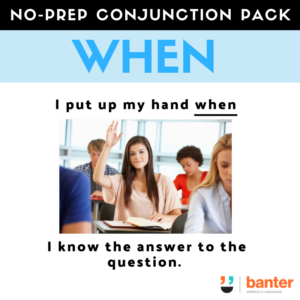
$2.99 including GST
This No Prep Pack is designed to introduce young kids to complex sentences and to help them to understand and use ‘When’.
Just jump into making sentences with ‘When’.
-
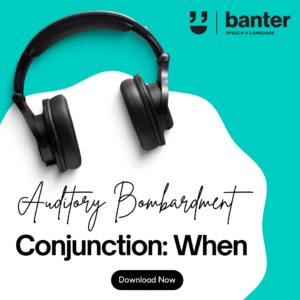
$3.99 including GST
Some children have difficulties putting their words into the right order in sentences, for instance, making complex sentences like “I like to eat when I am hungry.”
In this audio recording, children can listen to how “when” can be used to ask a question about time.
For this grammar goal, we provide a short .m4a recording and a script with pictures, so that, daily, children can:
-
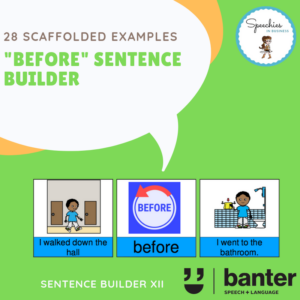
$5.99 including GST
One reason “before” is difficult to understand in sentences is that, sometimes, the sequence of events described does not match the word order of the sentence, e.g. “Before I put on my jacket, I put on my shoes.” Many people with language difficulties use a strategy of doing things in the order they are named. This is why many young children hearing the instruction above will put on their jackets first, and then their shoes, rather than the other way around.
In this 16-page language workout, we provide lots of examples of “before” in familiar routines. We have elected to use “before” as a conjunction (rather than as a preposition or adverb) to stimulate complex sentence development. We have used pictures as well as the words to support people who can read, and those that can’t.





